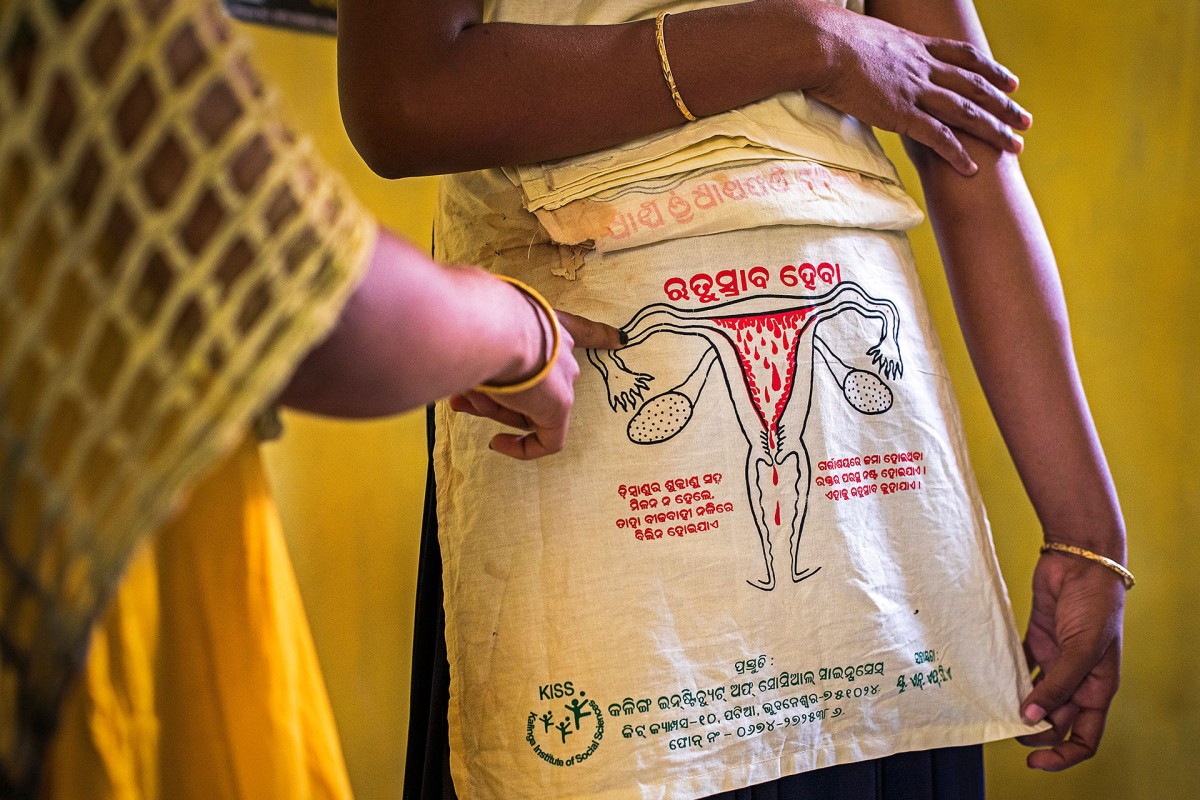Keeping up with menstrual health developments: time for an updated menstrual health manual
Simavi strives for a world in which all women, girls, and other people who menstruate enjoy their human rights to water and sanitation, resulting in healthy and just societies. The lack of access to all aspects of menstrual health is one of the ways through which women’s and girls’ rights are being suppressed. Therefore, in our programmes, Simavi provides training, workshops and technical assistance on menstrual health.
In 2018, Simavi developed a menstrual health manual serving as the basis for our work and that of our partners. To keep up with the ongoing developments and research on the topic, we are publishing the second version of the manual in November 2022. The information in the manual integrates Simavi's internal knowledge, experience and track record on menstrual health with the growing base of information and research on the topic.
The manual mainly contains information on menstruation and its relation to access to WASH and SRHR services.

Addressing different systems of oppression and inclusive approaches
In order to advocate for menstrual health for all, the different power structures surrounding those topics must be taken into account. Aside from offering information about the menstrual cycle, menstrual well-being and menstrual practices, this new version of the manual will further address the different systems of oppression and how they relate to the menstrual experience. As such, we take into account the global normative, social and rights frameworks necessary to achieve a holistic approach to achieving menstrual health for all. One important aspect is using inclusive and non-stigmatising language and approaches, which have been applied throughout the whole manual.
What more is new in the menstrual health manual?
Another change in the 2022 manual is the nuanced position on the effect of the menstrual cycle on health and well-being. Due to the general lack of research on issues concerning the assigned-female reproductive system, there is a knowledge gap on the effect of the menstrual cycle, hormones and menstrual disorders on menstruators all over the world. In most (patriarchal) cultures in which female bodies are objectified and medicalised, menstruation is seen as “dirty” and “unruly”, which causes a general “negative” view of menstruation. For Simavi, it’s important to break with this view and acknowledge the positive effects of the menstrual cycle. For instance, did you know that during ovulation menstruators generally feel happier and more energised and creative (p. 16)?
Moreover, in line with acknowledging the lack of research on health issues related to menstrual practices, we move from the common assumption that “unhygienic” menstrual practices lead to health issues. Rather, we outline why menstruators can be more vulnerable to infections during menstruation (p. 24) and highlight that menstrual blood is not “dirty” or “dangerous” (p. 38).
These are just a few examples of the manual review, you can read the full new manual.
For who is the menstrual health manual?
This manual is developed for practitioners, policymakers and trainers working on menstrual health programmes. In addition to the information and guidance manual, Simavi also developed a facilitation manual including facilitation guidelines and tools, and additional activities and discussion topics (available upon request).

